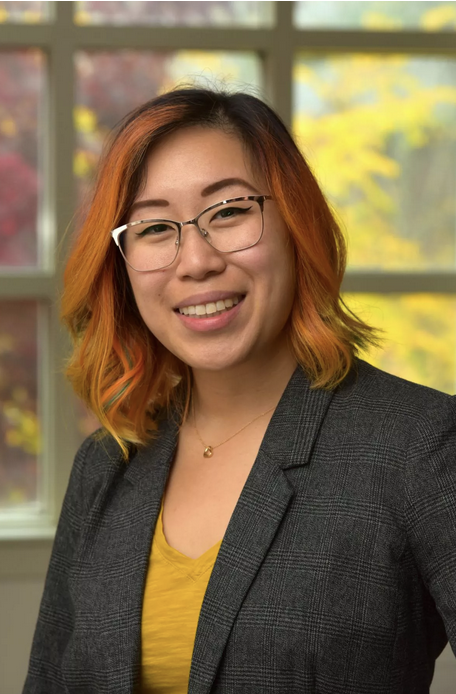I Am MLA: Engenia Opuda

Institution: University of New Hampshire
Title: Associate Professor; Health and Human Services Librarian
Brief description of what you do/your responsibilities at your institution:
I provide instruction, research, and reference support for the eight departments of the College of Health and Human Services at the University of New Hampshire. As a faculty member, I conduct research and serve on committees. I also teach a for-credit evidence synthesis course as part of the required curriculum in the graduate Doctor of Nursing Practice program.
Why is MLA important to you?
I look to MLA to keep on top of research and practice trends in order to enhance my own professional development. MLA provides the opportunity to network with medical and health sciences librarians outside of my region and enables me to develop research partnerships and connections across the association.
What was your first library job or first professional position?
My first paid library job was as a Graduate Reference Assistant at the Health Sciences Library (HSL) at SUNY Buffalo. In my first year of library school, one of the HSL librarians guest lectured about working in academic health sciences libraries and mentioned that there was a job opening for a library school student. Even though I didn’t expect to get into the health sciences, I jumped on the opportunity and landed the position. I’ve loved being a health sciences librarian ever since.
What has been the most interesting project you have worked on?
The most interesting project I have worked on was creating the IMLS-funded Empathy Project (https://sites.google.com/view/empathy-project/home). As the PI of the project, I led a team of library and museum workers to create an open, online training that uses readings, videos, and case studies to explore how the frameworks of social empathy and institutional body language can contribute to more inclusive libraries and museums. The training covers power and privilege, implicit bias, compassion fatigue, cultural humility, and many other topics.
What do you consider to be the most pressing issues or trends in librarianship?
It is critical that we keep an eye on AI trends and examine how it continues to shape research and practice in medicine and librarianship. We should be prepared to adopt and adapt to new technologies, understand some of the limitations of these technologies, and communicate this to our library users. We should also continue to explore how systemic bias has shaped research, policy, and practice in medicine and in librarianship, and to challenge ourselves to develop and implement inclusive practices for library workers and for library users.
What do you do in your spare time, for fun, or to relax?
My favorite hobbies are baking, crocheting, cooking, amateur woodworking, and amateur blacksmithing. I love to create and make things in different mediums.
What is the best thing you’ve read/watched/listened to recently?
I recently finished reading The Good Enough Job by Simone Stolzoff, which was recommended to me by one of my great colleagues. It is a book that challenges the ideas about work that many of us have grown up learning and internalizing. One chapter features the librarian, Fobazi Ettarh, who coined the concept of “vocational awe” in libraries. It’s an excellent read that I would recommend to anyone.
Is there anything about you that others might be surprised to know?
Others might be surprised to know that I was a contestant on Food Network’s Christmas Cookie Challenge baking competition in 2022.

